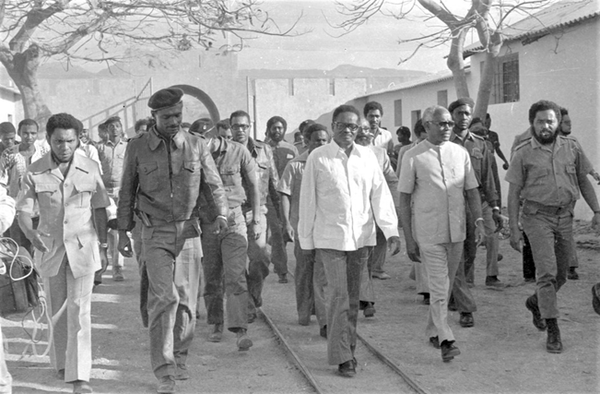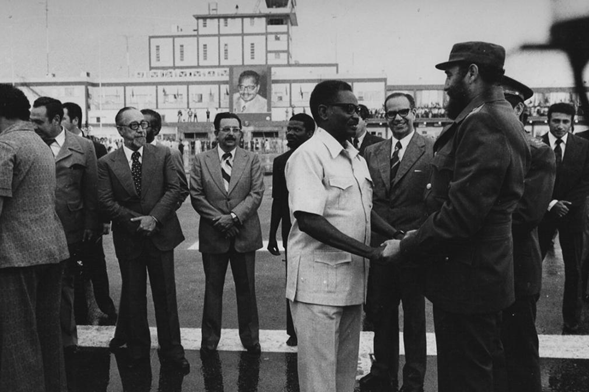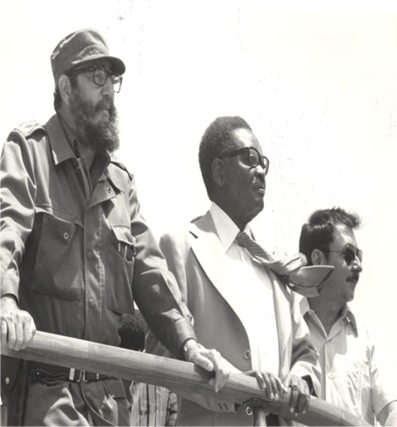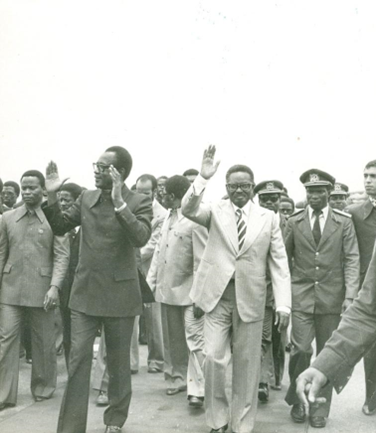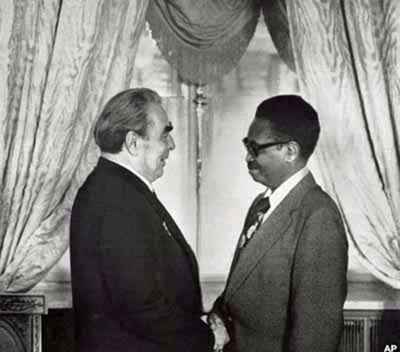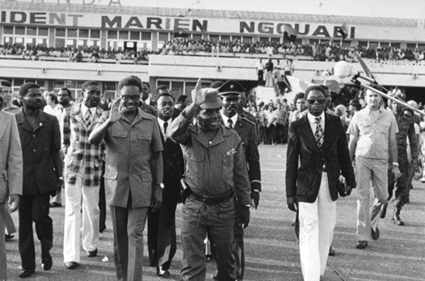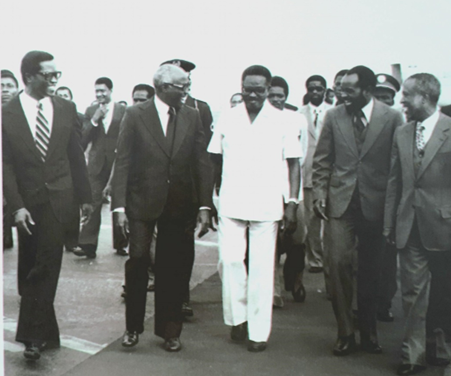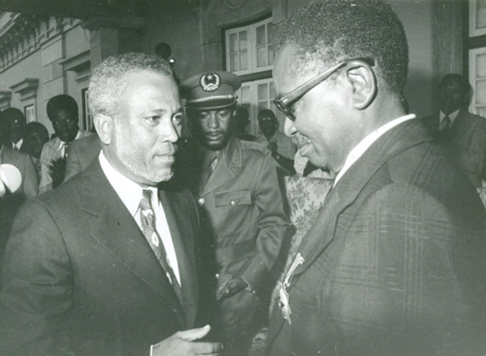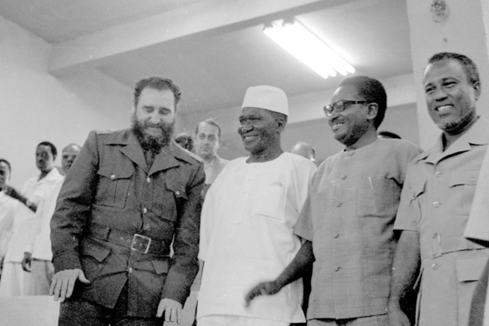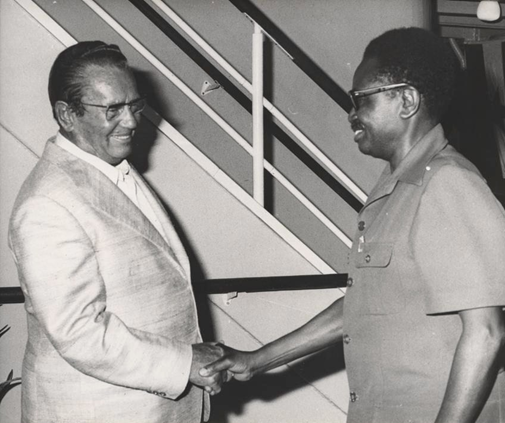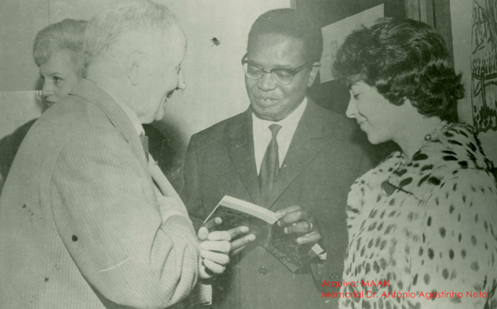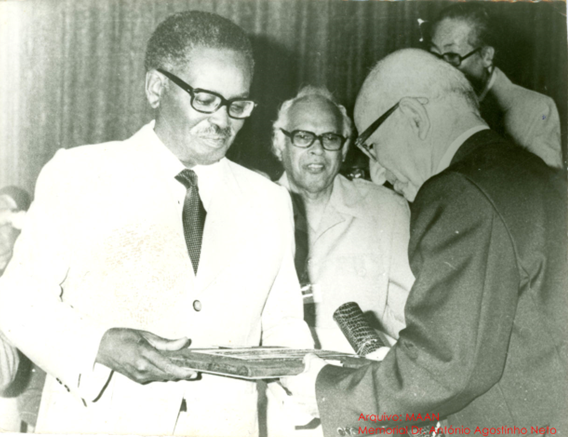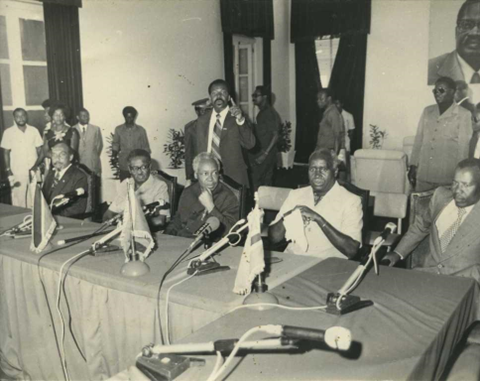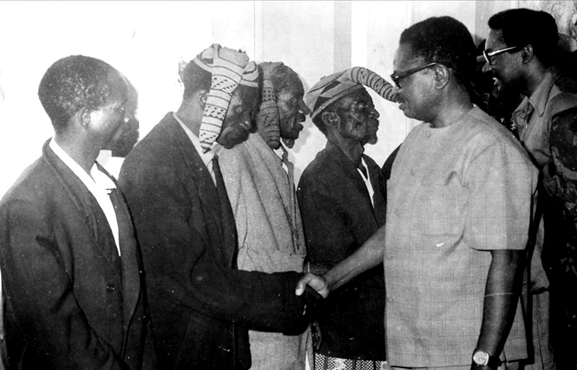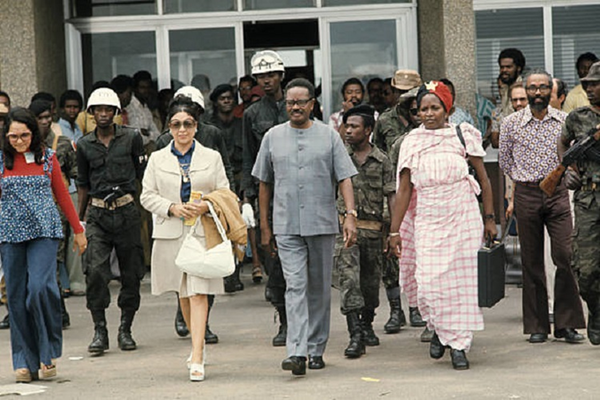Centenary of Birth of the First President of Angola
The following article was contributed by the Embassy of Angola in Seoul for publication by The Korea Post media, publisher of 3 English and 2 Korean-language news publications since 1985.—Ed.
António Agostinho Neto was born on September 10, 1922, in the village of Kaxicane, in Catete, a region on the margins of the River Kwanza, 60 km from the city of Luanda, the current capital of the Republic of Angola. He was the son of Pedro Neto, a Methodist pastor, and Maria da Silva, a primary school teacher. From a very early age, Agostinho Neto was among the outstanding students of his time who, in primary and secondary education, were on the honor roll of schools during that period.
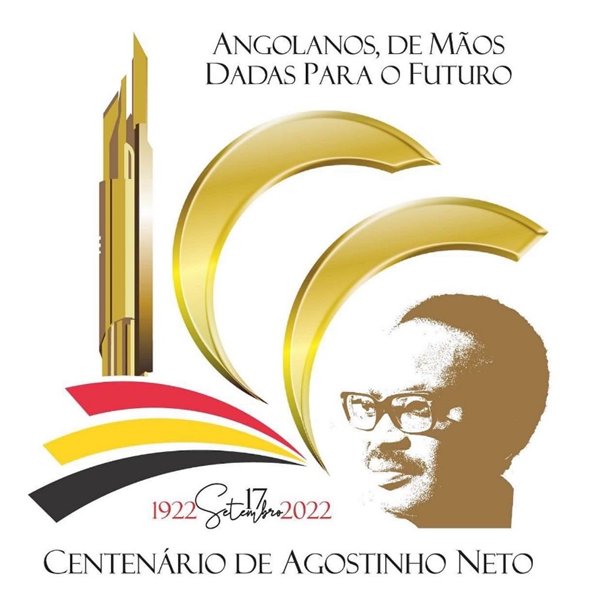
At the age of 22 (1944), being unsuccessful for a scholarship option, then granted by the colonial regime to finalists of the Liceu Salvador Correia High School, in Luanda, the option sought by Agostinho Neto was to find a job. Through a public tender, he joined the administrative staff of the Health and Hygiene Services of Angola. In these services, he was first placed in the city of Malange and then in Bié (both current capital cities of Malange and Bié Provinces). Upon arriving in Malange, he would again find himself confronted with racial prejudice.
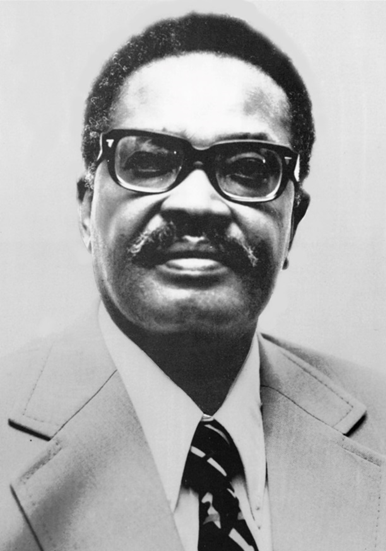
He had been “refused to enter a lower-class hotel, where European workers, many of whom were illiterate, normally stayed.” The confrontation with this type of humiliating situations, practiced by the then colonial fascist regime, reminded him of some situations he had experienced in his childhood, among the cotton workers in Icolo and Bengo (Icolo e Bengo did not exist as a location of the current province of Bengo. The province was Angola), and those hired on the coffee plantations in the Dembos region, in Piri, where his parents had been transferred.
These situations made him aware of the harsh realities of colonialism, which, in his mind, soon became an obstacle to combat. Thanks to his quality as a brilliant student, of having never stopped studying, three years later (1947), of having started his professional career as a civil servant, he met the conditions for his studies in Portugal, initially with the savings he managed to make as a civil servant in Angola, and later, through a scholarship awarded by the American Methodist Church. In the same year (1947) he entered the Faculty of Medicine of the University of Coimbra. In the University City, Agostinho Neto joined the group of African students and became part of the Delegation of the Empire Students’ House (CEI) in Coimbra, whose headquarters were in Lisbon. The CEI was, at the time, the most prominent agglutinating center of the nationalist consciousness of African student movements.
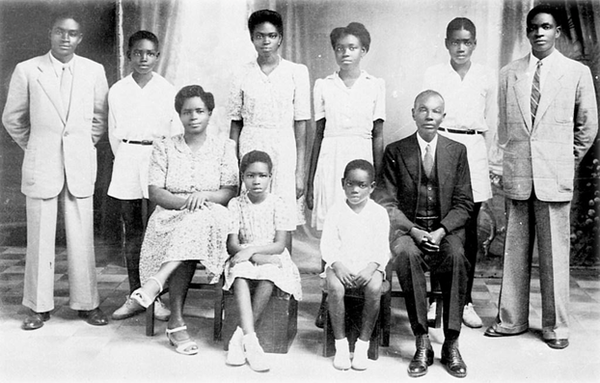
In 1952 he moved to Lisbon, where he intensified his clandestine political influence with the African student community and other countries. In the same year (1952), when, in the company of his colleagues, he was collecting signatures for “Appeal to the Peace Pact”, Neto was arrested for the first time, accused of the “crime of carrying subversive pamphlets”. In 1955, Neto suffers his second arrest. Freed in 1957, and not giving up on the noble cause that impelled him, he joined the group of his companions, Amilcar Cabral (Guinean), Viriato da Cruz, Mário Pinto de Andrade and Lúcio Lara, Angolans and other nationalities, and participated in the foundation of the MAC - Anti-Colonialist Movement, mostly composed of mixed-race and white students of African origin.
Through poetry, Neto contributes significantly to raising the cultural awareness of African student movements in Portugal and, in this aspect, stands out within the movements.
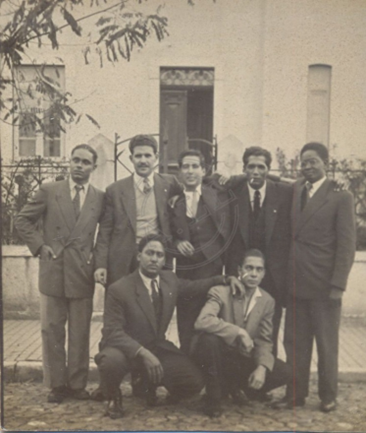
Neto's intense clandestine political activity and the constant imprisonments made him finish his degree in medicine at the University of Coimbra only in 1958, that is, 12 years later and at the age of 35. Imbued with the nationalist spirit and living the extreme conditions of torture exercised against the Angolan people by the then Portuguese fascist and colonial regime, Agostinho Neto realized the need to embark on an armed struggle for the liberation and independence of Angola. At the end of 1959, Neto returned to Angola, already as a doctor, and dedicated himself to assisting the low-income populations of the peripheral neighborhoods of Luanda. Six months after his arrival in Luanda - and at a time when the wave of arrests of most Angolan nationalists and Portuguese with progressive ideals, who showed great moral courage against the oppression of the colonial regime, despite the close surveillance they were targeted by the then International Police for the Defense of the State (PIDE), Portuguese secret police - Neto was, on June 8, 1960, arrested with other Angolan nationalists, giving rise to several reactions across the country and the world (... ).
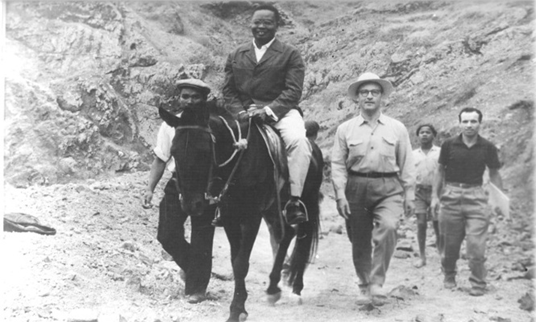
“From that moment on, Agostinho Neto found in poetry the most adequate expressions to give voice to his indignation in the face of injustice and to transmit the "Sacred Hope" in the victory of the weak over the strong, of the humiliated and offended over the proud and arrogant holders of the colonial and fascist power, not only in Portugal, but also in other parts of the world.
In August of the same year (1960), precisely 2 months after his arrest in Luanda, and with the aim of avoiding greater fuss at the international level, the colonial authorities transferred Neto to the jail in Aljube (Lisbon) to serve his imprisonment in isolation. In October of that year, he was transferred again to Tarrafal, São Vicente Island, in Cape Verde (also under colonial rule), to serve his sentence. However, 8 days after his arrival in that city, he was accused, on the basis of the following argument: “It seems that Dr. Agostinho Neto (Maria Eugénia Neto), who recently returned from the Metropolis, brought to this city a photograph showing a group of European soldiers with a black man's head on a stick.
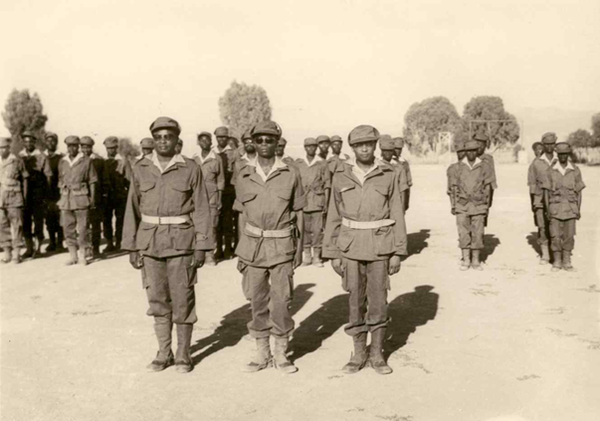
It is said that the photograph in question was taken in Angola, but it is certainly a forgery intended for political propaganda. As far as is known, Dr. Agostinho Neto has shown the alluded photograph to some individuals of the group with whom he related in the city of Praia. (...)". Based on this accusation, Neto is transferred back to Aljube, in Lisbon, where he had previously been. Six months after this last arrest, Neto decided to send a petition to the then Overseas Minister "to be allowed to leave with his family to any country in Latin America", in order to "be able to live free from fears and difficulties". Naturally, the request was denied. To escape the difficult situation that he was going through and that also affected his young family, Neto then outlined the strategy of escaping from Portugal, with the help of members of the Portuguese Communist Party (PCP), and other Portuguese progressives who were opposed to fascist colonial regime and the Istiqlal Party, then in power in Morocco. On June 30, 1960 (...), together with his wife and two minor children (infants), he left Lisbon on a friend's boat, to Rabat (Morocco). Arriving in Morocco, he goes to Léopoldville (now Kinshasa, DRC), to meet the MPLA Steering Committee. Here, at a press conference, Neto announced to the world "the unification of nationalist forces in a common front".
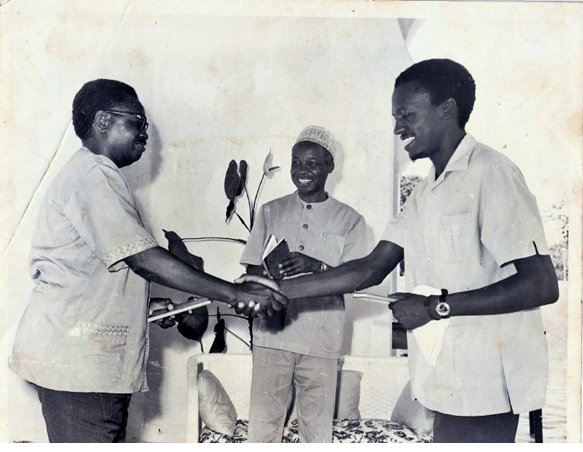
The following year, 1962, Neto organized the Movement internally and during the 1st National Conference of the Movement, in Léopoldville (currently Kinshasa, capital of the Democratic Republic of Congo), Agostinho Neto was elected president of the MPLA. Its slogan “generalization of the armed struggle to the entire extension of the national territory,” allowed the gathering of ideas and strategies for the guerrilla movement against Portuguese colonialism. MPLA temporarily settles in Dar-es-Salam (Tanzania), and later moves to Brazzaville, capital of the current Republic of Congo. From there, Neto reorganizes the Popular Movement for the Liberation of Angola (MPLA), outlines the strategy of political action of the Movement, coordinates guerrilla actions against the Portuguese colonial occupation, creates representations in several countries such as Algeria, Morocco and other African countries, as well as leads the international campaign to raise political awareness of the cause of the independence of Angola.
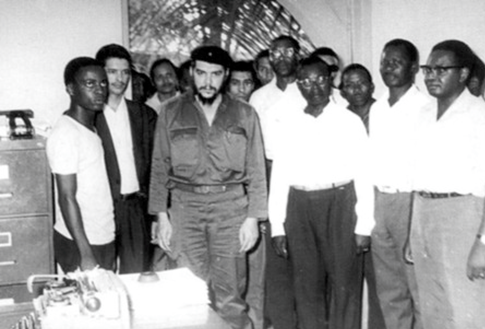
In January 1967, during a press conference, Agostinho Neto launches the slogan “The struggle continues, victory is certain”, expression that established itself as the political driving force of the MPLA for the armed struggle for national liberation and used to this day. The following year, January 1968, through the MPLA Radio "Angola Combatente", broadcast from Dar-es-Salam (Tanzania), Neto ordered Angolan nationalists and other citizens who felt truly patriotic and refugees abroad, “ to return to the MPLA-controlled areas in Angola, to join the Movement's guerrillas and together to participate in the process of the armed struggle for the liberation of Angola”.
The armed struggle against the Portuguese colonial occupation was launched on February 4, 1961 and culminated in the proclamation of Angola's national independence, on November 11, 1975, by Dr. António Agostinho Neto, First President and founder of the Angolan Nation.
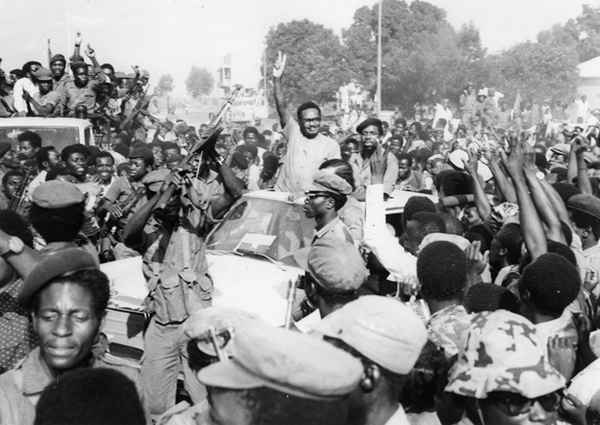
As a politician, Agostinho Neto has always been guided by a philosophy of diplomatic dialogue, for the resolution of conflicts between States, never having discarded the possibility of, in the name of peace and stabilization of Angola, dialogue with his opponents in the middle of the Cold War. It was in this context of non-alignment that he embraced the Pan-Africanist vision, which led him to “face the challenges of other peoples as our own”. In this context, Agostinho Neto made several trips around the world, with emphasis on the visit to the Republic of Zaire, a neighboring country to the north of Angola, led at the time by Marshal Mobutu Sesse Seko, to dialogue with him and end the unfriendly state that prevailed between the two sister countries. This feeling is reflected in one of his poems, where Neto wrote: "my hands laid stones on the foundations of the world, I deserve my piece of bread". The "Piece of bread" referred to here is understood as the merit and recognition of the unavoidable role of Agostinho Neto in the construction of a united Angola, pacified, developed and focused on solving the people's problems.
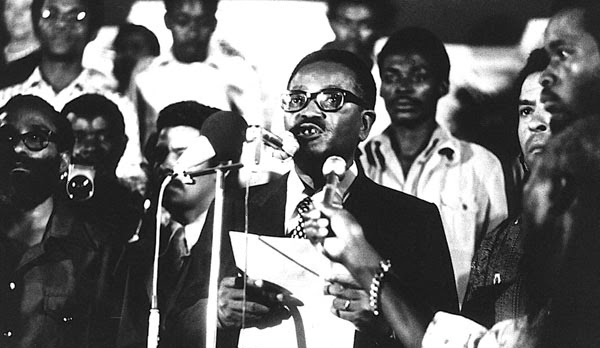
Agostinho Neto is one of the unavoidable figures for the freedom of the Angolan and African peoples. He is one of the personalities of the then Pan-African Movement (MPA), of which we highlight his dedication to the cause of the total liberation of African peoples, a process that makes him the most notable Angolan politician in Africa and an influential personality in Third World countries. In this capacity, Neto defended the independence of Namibia, Zimbabwe and South Africa, causes that he considered to be the continuation of the Angolan struggle in the process of decolonization of African countries, whose independence came to fruition in the 70s, 80s and 90s (end of the apartheid regime in South Africa) of the 20th century. The feeling of solidarity with the peoples in struggle made Agostinho Neto an African personality of greatest reference in the Movement of Non-Aligned Countries (MPNA), during that period.
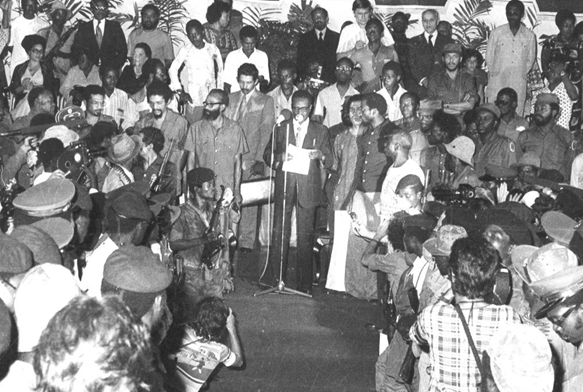
The MPNA was an important landmark of resistance of the countries then considered to be of the “Third World” (mainly African, Asian and Latin American countries), against the insurgency of the “hegemonic” countries, as a consequence of the bipolar world system then existing.
On the other hand, Agostinho Neto established himself as a man of culture and letters. As a writer and poet, Agostinho Neto is the author of several literary works, especially the work “Sacred Hope”, the greatest of its literary genre, with the poems “Farewell at the hour of parting; The Cry of Africa; Shall We Return…”, whose contents represent the feeling of Angolanness.
His trajectory as a major poet, and as a statesman, doctor and man of culture, has served as a source of inspiration for the new generation of national authors, insofar as, for its aesthetic and literary value, the work of the first President of Angola reflects the story of a life of struggle against colonialism, fascism and colonial oppression, as well as the suffering of Angolans in particular and Africans in general.
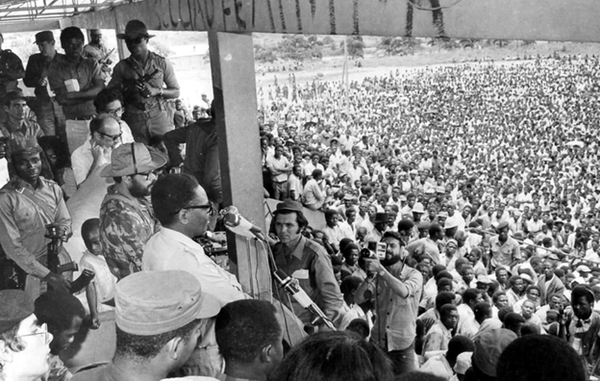
Neto's total dedication to the cause of the struggle for Angola's independence makes him the Greatest Symbol of the Angola Nation. For this reason, the 17th of September, the date of his birth, time at which it is also noted as National Hero's Day as well as date reminded for his death due to illness, occurred in Moscow, in the then Union of Soviet Socialist Republics (USSR) on September 10, 1979.
For this reason, Angolans celebrate this year the Centenary of the Birth of António Agostinho Neto, First President of Angola, with the feeling of preserving his ideals of National Unity of One People and One Only Nation, and the Rescue of the Values of the Angolan Motherland. Agostinho Neto is forever the Angolan Nation Guide.
